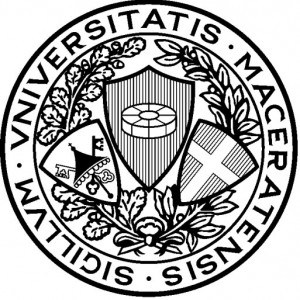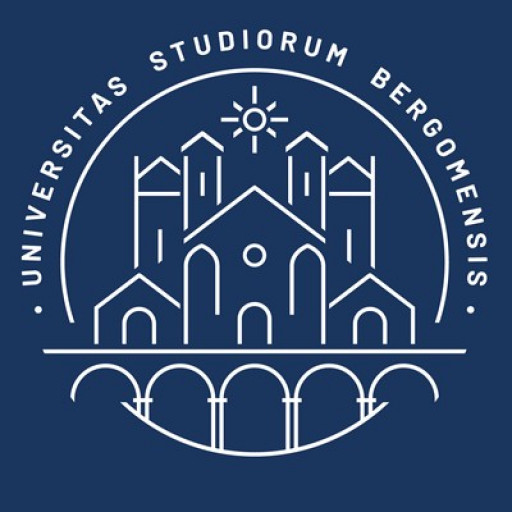Photos of university / #ucl
Digital Humanities at University College London offers an innovative and interdisciplinary Master's program designed to explore the intersection of technology, humanities, and cultural studies. This program equips students with the skills and knowledge necessary to analyze, interpret, and digitize cultural artifacts, historical data, and literary texts using cutting-edge digital tools and methods. Emphasizing a combination of theoretical understanding and practical application, the curriculum covers topics such as text analysis, digital curation, data visualization, digital archiving, and computational approaches to humanities research. Students will gain hands-on experience with various digital platforms, programming languages, and software essential for conducting research in the digital age. The program encourages critical thinking about the ethical, social, and cultural implications of digital technologies in the humanities. It aims to prepare graduates for careers in academic research, digital archiving, cultural heritage management, digital publishing, or technology development within cultural institutions. Taught by leading experts in the field, the program fosters an interdisciplinary environment where students can collaborate across departments such as History, Archaeology, Literature, and Computer Science. With access to UCL’s extensive resources, including digital labs, archives, and libraries, students are empowered to undertake independent research projects. The program also emphasizes the importance of communication skills, campus engagement, and professional development to ensure graduates are well-equipped for dynamic roles in academia, industry, and cultural organizations. Whether you are a recent graduate or a professional seeking to enhance your digital skills in the humanities, this program offers a comprehensive and forward-thinking approach to the rapidly evolving field of Digital Humanities at UCL.
Our students develop an advanced understanding of digital resources, techniques and computational methods relevant to research and practice in the humanities and cultural heritage sectors; these include programming, XML, databases, internet technologies, image capture and digitisation. They receive both practical and theoretical training to develop a unique and critical skill set suitable for many types of employment or advanced study.
Students undertake modules to the value of 180 credits.
The programme consists of five core modules (15 credits each), three optional modules (15 credits each), a research dissertation (60 credits) and a work placement.
A Postgraduate Diploma, five core modules (75 credits), three optional modules (45 credits), nine months full-time or flexible study up to 5 years is offered.
A Postgraduate Certificate, four from any of the available modules (60 credits), full-time fifteen weeks or flexible study up to two years is offered.
Core modules
- Digital Resources in the Humanities
- Internet Technologies
- Introduction to Programming and Scripting
- Server Programming and Structured Data
- XML
Optional modules
Students choose three optional modules from a list which may include the following:
- Advanced Topics in the Digital Humanities
- Affective Interaction
- Computer Music
- Design Practice
- Electronic Publishing
- Fundamentals of Information Science
- Geographical Information Systems
- Historical Bibliography
- Interaction Design
- Introduction to Digital Curation
- Introduction to Digitisation
- Knowledge Representation and Semantic Technologies
- Legal and Social Aspects of Electronic Publishing
- Manuscript Studies
- Multimedia Computing
- User-Centred Evaluation Methods
Dissertation/report
All MA/MSc students undertake an independent research project in the form of a 12,000-word dissertation.
Teaching and learning
The programme is delivered through a combination of lectures, demonstrations, seminars and practical sessions, and will include a work placement in a relevant organisation. Assessment is through a mixture of essays, practical projects, programming exercices, written technical examinations, and group work projects, depending on the options chosen.
Placement
Students undertake a work placement. Past placement hosts have included the British Museum, National Theatre, British Library, Marx Memorial Library, Islington Museum, Ubiquity Press, UCL Communications, and UCL Art Museum.
A minimum of an upper second-class Bachelor's degree in a relevant humanities or computing discipline from a UK university, or an overseas qualification of an equivalent standard.
Want to improve your English level for admission?
Prepare for the program requirements with English Online by the British Council.
- ✔️ Flexible study schedule
- ✔️ Experienced teachers
- ✔️ Certificate upon completion
📘 Recommended for students with an IELTS level of 6.0 or below.
The University College London (UCL) offers various financing options for students enrolled in the Digital Humanities MSc program, aiming to support both domestic and international students financially throughout their studies. Tuition fees vary depending on the student's residency status, with UK and EU students typically paying a different rate compared to international students. For the academic year 2023-2024, the approximate tuition fee for UK students is around £12,000, while international students are charged approximately £24,000. These figures are subject to change annually and should be verified on the official UCL website prior to application.
In addition to tuition fees, students should consider potential living expenses, which can include accommodation, food, transportation, study materials, and personal costs. UCL provides estimated living costs that range from £1,200 to £1,500 per month, depending on the city’s living standards and individual lifestyle choices. Prospective students are advised to carefully plan their finances ahead of time to ensure they can cover these expenses throughout the duration of the program.
UCL offers several funding opportunities for Digital Humanities students. These include scholarships, bursaries, and grants that are designed to reduce the financial burden for both domestic and international students. Competitive scholarships may be awarded based on academic merit, research proposal quality, or financial need. For example, UCL's Graduate Support Scheme provides financial assistance for master's students facing hardship, while specific faculty scholarships support students specializing in Digital Humanities.
Students are also encouraged to explore external funding sources such as government scholarships, private foundations, and international organization awards. Many students utilise student loans, which are available through various national funding agencies based on eligibility criteria. UK students may access government-sponsored student loans, while international students might need private loans or sponsor support.
Work opportunities are also available for students during their course studies. UCL permits part-time employment during term time, enabling students to earn supplementary income while gaining professional experience. The university’s career services and job portals can assist students in finding suitable part-time roles or internships relevant to Digital Humanities.
Lastly, prospective students are advised to contact the university's financial aid office for personalized advice and to stay updated on new funding opportunities. Early application for scholarships and financial aid is recommended, as many awards are competitive and have specific deadlines. Overall, UCL strives to make higher education accessible through a comprehensive array of funding options, thereby supporting students in successfully completing their Digital Humanities MSc program without undue financial strain.
The MSc in Digital Humanities at University College London (UCL) is a multidisciplinary program designed to equip students with the skills and knowledge necessary to analyze, interpret, and visualize digital data within the context of the humanities. The program explores the intersection of computing technologies and humanities disciplines such as history, literature, archaeology, and cultural studies. It aims to develop a critical understanding of digital methods and tools, including data analysis, digital coding, databases, and digital storytelling, which can be applied to research and cultural heritage projects. The curriculum combines theoretical foundations with practical training, enabling students to work on real-world digital humanities projects, collaborate across disciplines, and acquire competencies in digital curation, digital archiving, and preservation.
Students in this program benefit from UCL's expertise in digital research methods and its extensive network of academic and industry partners. The program offers a mixture of lectures, seminars, practical workshops, and independent research. There are opportunities to specialize in areas such as computational linguistics, digital mapping, data visualization, and the use of digital tools for textual analysis and cultural heritage management. The program also emphasizes the importance of ethical considerations surrounding digital data and cultural information. Graduates of the MSc in Digital Humanities can pursue careers in academia, cultural institutions, libraries, museums, digital media companies, and heritage organizations, engaging in digital project management, research, and consultancy.
UCL's location in London provides students with access to a vibrant cultural and scholarly environment, rich with museums, galleries, and historic sites that offer practical opportunities for fieldwork and internships. The program is suitable for individuals with backgrounds in the humanities, social sciences, computer science, or related fields who are interested in expanding their digital skills and understanding of how digital technologies can transform humanities research. Overall, the MSc in Digital Humanities at UCL is a forward-thinking program that prepares students to lead and innovate in the rapidly evolving digital landscape of the humanities.











